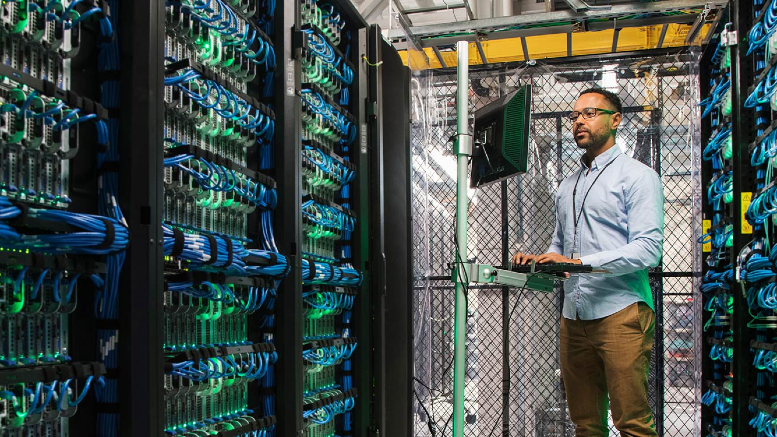The Philippines Shows the Highest Level of Concern Over Security Issues; One in Five Filipinos Have Stopped Dealing With an Organisation After a Data Breach - New Unisys Security Index™
- At large events, Filipinos are almost as concerned about data theft on public Wi-Fi as they are about physical attacks
- Filipino citizens support police collecting or sharing their data to fight crime or provide emergency services, but not for government to plan public infrastructure
Manila, Philippines, 10 September 2019 – Philippine consumers again report the highest level of concern about security issues among the 13 countries surveyed in the latest Unisys Security Index™. And in a warning to Philippine businesses and government agencies, the new research from Unisys Corporation (NYSE: UIS) finds that data security dominates consumers' concerns and that many Filipinos actively respond after a data breach by closing accounts, taking legal action and using social media to expose the issue.
The longest-running recurring snapshot of consumer security concerns conducted globally, the Unisys Security Index measures concerns of consumers on issues related to national, personal, financial and internet security. The study polled 1,079 adults in the Philippines 27 February-22 March 2019. The 13 countries surveyed are Australia, Belgium, Brazil, Chile, Colombia, Germany, Malaysia, Mexico, Netherlands, New Zealand, Philippines, the U.K. and the U.S.
The 2019 Unisys Security Index of the Philippine public is 234 out of 300, where 300 represents the highest level of concern. It is the highest level of concern of the 13 countries surveyed and is 59 points higher than the global average. It has increased slightly from 232 in 2018.
Data Security Top Concern for Filipinos
Three of the top four concerns in the Philippines relate to data security, with 90% of Filipinos seriously concerned about unauthorised access to their personal information, 87% seriously concerned about internet hacking or viruses and 84% seriously concerned about bankcard fraud.
This year, the Philippines is the only country where concern about natural disasters such as floods or typhoons ranks in the top three concerns, with 89% of Filipinos concerned about this issue. The largest change in the last year is a six percentage point increase in concern about online transactions such as shopping or banking, up from 76% in 2018 to 82% in 2019.
More than a third (36%) of Filipinos report they suffered a data breach in the last year, with the most common types of attacks being email hacking (experienced by 16% of respondents), social engineering scams that tricked them into providing information (13%) and social media profiles hacked (12%).
"With data more relevant than ever, the Department of Information and Communications Technology is at the forefront of protecting every Filipino in cyberspace through Critical Infrastructure Protection, National Computer Emergency Response Team, Protection of Government Information Systems and Child Online Protection. In addition, we are set to rollout the cybersecurity management system to more government agencies by 2021. Complementing this initiative, we are engaging schools to educate and train the youth on the latest trends and issues on cybersecurity," said Department of Information and Communications Technology Assistant Secretary for Digital Philippines, Emmanuel Rey R. Caintic.
Filipinos Take Action after Data Breaches
Ashwin Pal, director of security services for Asia Pacific, Unisys, explains that the research shows organisations are at risk not just of losing data, but also of losing business. "Consumers hold the business or government agency responsible for not protecting their data, and many Filipinos are taking action. Among Filipinos who report they have suffered a data breach in the last year, almost a quarter (24%) say they took legal action, one in five (21%) stopped dealing with the organisation such as closed their account, and 18% exposed the issue on social media. This results in customer loss, reputation damage, legal disputes and inhibits take-up of online or digital services," he says.
Action taken by Filipinos who report they suffered a data breach in the last year:
| 24% | Took legal action |
| 21% | Stopped dealing with the organisation such as closing my account |
| 18% | Publicly exposed the issue on social media, e.g. Facebook |
| 11% | Publicly exposed the issue by taking it to the media |
| 11% | Continued dealing with the organisation but not online |
At Big Events, Filipinos Almost As Concerned About Cyber Threats As Physical Attacks
When asked about security concerns at large-scale events such as a sports match or music festival, Filipinos are almost as concerned about theft of credit card data (84%) or personal data (84%) from a mobile device when using public wi-fi at the event, as they are concerned about a criminal attacking and harming event attendees (86%) – a clear example of their heightened awareness of cybersecurity threats. More than half (56%) say they have thought twice about attending an event because of their security concerns and one-third (33%) have changed their plans to attend certain events, while 23% say they still attend events but take extra precautions to protect their security.
Support for Data Collection and Sharing Depends on Trust, Privacy and Security
Filipinos are discerning about which situations they deem acceptable for an organisation to collect data from social media, online purchases, smartphones and wearable devices. Almost half of respondents (49%) support the government collecting this information to identify who is in the vicinity of a disaster, yet only 21% support the government monitoring an individual's travel patterns to plan roads and public infrastructure. More than a third (39%) support airport and airlines collecting the information to efficiently guide a passenger's journey through an airport, but only 20% support an employer doing the same to monitor an employee's location during the workday.
Similarly, public support varies for organisations sharing an individual's personal information with other organisations. The highest support is for police sharing information with other law enforcement agencies domestically (78%) or internationally (76%) to solve a crime. There is also strong support (67%) for a government-administered proof-of-identity used to confirm a citizen's identity to access commercial services such as a bank account. However, only 31% support banks sharing a customer's financial data with another financial service provider to offer a single point of contact for multiple services. The most common reason given for not supporting this is concern is that they want control over who has access to their personal data.
Lysandra Schmutter, vice president public sector, Unisys Asia Pacific says: "Reflecting their high level of concern about data security, Filipinos are very selective about how and when they support their personal information being collected or shared. This appears to be driven by a combination of trust in the organisation involved, the purpose given for how the data will be used and the benefit to the individual. To gain public support, organisations must show they are addressing all three criteria."
Download the detailed report and infographic at: www.unisyssecurityindex.com.ph
###
About the Unisys Security Index
Unisys has conducted the Unisys Security Index – the longest-running recurring snapshot of consumer security concerns conducted globally – since 2007 in order to provide an ongoing, statistically-robust measure of concern about security. The index is a calculated score out of 300 covering changing consumer attitudes over time across eight areas of security in four categories: national security and disaster/epidemic, in the National Security category; bankcard fraud and financial obligations, in the Financial Security category; viruses/hacking and online transactions, in the Internet Security category; and identity theft and personal safety, in the Personal Security category. The Unisys Security Index is based on national surveys of 1000 adults aged 18-64 years of age in each of the following countries: Australia, Belgium, Brazil, Chile, Colombia, Germany, Malaysia, Mexico, Netherlands, New Zealand, Philippines, the U.K. and the U.S. The margin of error +/-3.1% per wave at 95% confidence level and 0.9% for the global results.
About Unisys
Unisys is a global information technology company that builds high-performance, security-centric solutions for the most demanding businesses and governments on Earth. Unisys offerings include security software and services; digital transformation and workplace services; industry applications and services; and innovative software operating environments for high-intensity enterprise computing. For more information on how Unisys builds better outcomes securely for its clients across the Government, Financial Services and Commercial markets, visit www.unisys.com.ph. Follow Unisys on Twitter and LinkedIn.
Contacts:
Katrina Domingo, Greenbulb Communications, +63 917 830 9762, kat@greenbulbpr.com
Claire Hosegood, Unisys APAC, +61 411 253 663, claire.hosegood@au.unisys.com
Unisys and other Unisys products and services mentioned herein, as well as their respective logos, are trademarks or registered trademarks of Unisys Corporation. Any other brand or product referenced herein is acknowledged to be a trademark or registered trademark of its respective holder.
















